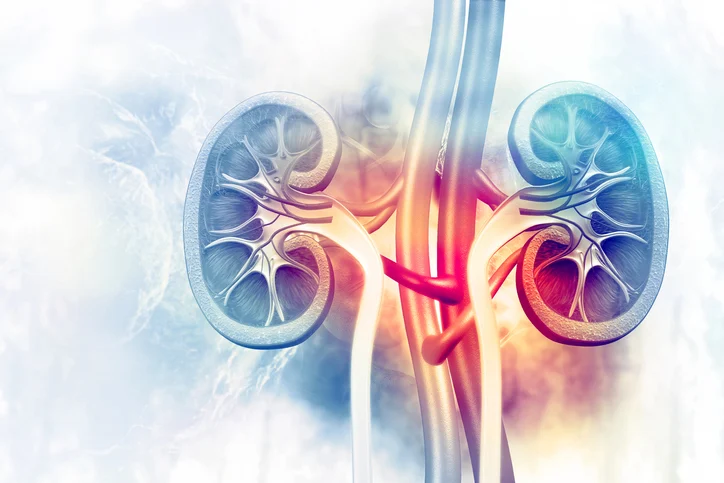预约演示
更新于:2025-05-07
Familial HDL Deficiency
家族性高密度脂蛋白缺乏症
更新于:2025-05-07
基本信息
别名 FAMILIAL HDL DEFICIENCY、FHD、Familial HDL deficiency + [16] |
简介- |
关联
5
项与 家族性高密度脂蛋白缺乏症 相关的药物靶点 |
作用机制 BRD4抑制剂 [+1] |
在研机构 |
最高研发阶段临床3期 |
首次获批国家/地区- |
首次获批日期1800-01-20 |
作用机制 APOA1刺激剂 [+1] |
非在研适应症 |
最高研发阶段临床2期 |
首次获批国家/地区- |
首次获批日期1800-01-20 |
靶点 |
作用机制 CETP抑制剂 |
在研机构- |
在研适应症- |
最高研发阶段终止 |
首次获批国家/地区- |
首次获批日期1800-01-20 |
28
项与 家族性高密度脂蛋白缺乏症 相关的临床试验NCT06555159
EFFECT OF AN AEROBIC EXERCISE PROGRAM ON METABOLIC DISORDERS LEVELS IN HIGHER EDUCATION STUDENTS AT THE UNIVERSITY OF COLIMA, RANDOMIZED CLINICAL TRIAL.
This clinical trial objective is to evaluate the effect of an aerobic physical exercise program on reducing triglycerides, blood pressure, abdominal obesity, altered glucose levels, and the increase in HDL in college-level students at the University of Colima. It will try to answer whether aerobic physical exercise reduces metabolic disorders (altered blood pressure and glucose levels, abdominal obesity, and increased HDL). A simple randomized clinical trial will be conducted with a sample of 48 voluntary students from the University of Colima, divided into two groups of 24 people (Control group -A-, will perform aerobic physical exercise, which will be walking at 57% to 76% of HRmax; and Experimental Group -B-, will undergo an aerobic physical exercise (APE) program involving jogging, swimming, and static cycling, with a progressive intensity, which will start at 57%-63% of the maximum heart rate (HRmax) in the first 4 weeks of the study, and will increase to 64% -76% in the final four weeks, fulfilling the principle of progressive overload).
Researchers will compare the results of both groups to confirm the effectiveness of the planned aerobic physical exercise in reducing these risks.
Researchers will compare the results of both groups to confirm the effectiveness of the planned aerobic physical exercise in reducing these risks.
开始日期2024-09-01 |
申办/合作机构 |
NCT06439654
Atlantic Lipid Lowering Treatment Optimization Program (ALLTOP): A Comprehensive Approach to the Treatment of Familial Hypercholesterolemia and Complex Dyslipidemias
Hypercholesterolemia is recognized as the major driver for cardiovascular morbidity and mortality. To help address this in our community, Atlantic Medical Group (AMG) formed a lipid workgroup chaired by Robert D. Fishberg, MD, and Jeffrey N. Feldman, MD. The overarching goal of the lipid workgroup is to enhance the treatment of lipid disorders in those patients with abnormal lipid levels by improving access to resources at the primary care practice level and specialty level. We aim to develop a model for primary and secondary prevention that integrates guidelines for treatment at the practice level. Our primary objective is to identify high-risk patients by utilizing the electronic health record and partnering with patients' primary care providers to provide comprehensive medical management.
开始日期2024-06-01 |
申办/合作机构 |
NCT06571578
High Intensity Interval Inspiratory Training Effect on Ventilatory Functions and Diaphragmatic Excursion in Forward Head Posture
PURPOSE: ......... The purpose of the study is to investigate the effect of interval inspiratory muscle training on respiratory functions in subjects with forward head posture associated with chronic nonspecific neck pain
BACKGROUND: Alteration of head and neck positions can have an immediate negative effect on respiratory function. Clinicians should be prompted to assess respiratory function when assessing individuals with FHP and decrease the tension on respiratory system to avoid consequence. Also FHP has a negative effect on chest expansion and diaphragmatic function
the incidence of forward head posture increases nowadays due to increase using of smartphones HYPOTHESES:: There will be no a significant effect of interval inspiratory muscle training on respiratory functions in chronic forward head posture subjects.
RESEARCH QUESTION: Will the interval inspiratory muscle training improve respiratory functions in subjects forward head posture associated with chronic nonspecific neck pain?
BACKGROUND: Alteration of head and neck positions can have an immediate negative effect on respiratory function. Clinicians should be prompted to assess respiratory function when assessing individuals with FHP and decrease the tension on respiratory system to avoid consequence. Also FHP has a negative effect on chest expansion and diaphragmatic function
the incidence of forward head posture increases nowadays due to increase using of smartphones HYPOTHESES:: There will be no a significant effect of interval inspiratory muscle training on respiratory functions in chronic forward head posture subjects.
RESEARCH QUESTION: Will the interval inspiratory muscle training improve respiratory functions in subjects forward head posture associated with chronic nonspecific neck pain?
开始日期2023-05-03 |
申办/合作机构 |
100 项与 家族性高密度脂蛋白缺乏症 相关的临床结果
登录后查看更多信息
100 项与 家族性高密度脂蛋白缺乏症 相关的转化医学
登录后查看更多信息
0 项与 家族性高密度脂蛋白缺乏症 相关的专利(医药)
登录后查看更多信息
741
项与 家族性高密度脂蛋白缺乏症 相关的文献(医药)2025-05-12·Substance Use & Misuse
The Association of Risk-Related Behaviors and Mental Health Symptomatology on Problematic Alcohol Use Among U.S. Army Reserve and National Guard Soldiers
Article
作者: Collins, R. Lorraine ; Homish, Gregory G. ; Butler, Lisa D. ; Homish, D. Lynn ; Kulak, Jessica A. ; Arif, Mehreen
2025-04-01·American Journal of Surgical Pathology
Age, Morphology, Fumarate Hydratase/S-(2-succino) Cysteine Immunohistochemistry, and Germline Testing
Article
作者: Hodan, Rachel ; Monsrud, Ashley ; McHenry, Austin ; Folkins, Ann ; Pors, Jennifer ; Longacre, Teri
2025-04-01·Digestive Diseases and Sciences
Risk Factors of Missed Adenoma Detected by Colonoscopic Polypectomy and Its Impact of the Endoscopic System
Article
作者: Lee, Jong Yoon ; Choi, Chi Hyeon ; Lee, Jong Hoon ; Koh, Myeong Seok
4
项与 家族性高密度脂蛋白缺乏症 相关的新闻(医药)2023-07-07
·生物谷
四季豆对高脂饮食引起的脂肪肝具有保护作用,可以降低肥胖、血脂、血糖等症状,激活多种代谢途径,从而改善脂肪肝
非酒精性脂肪肝病(NAFLD),是中国发病率最高的慢性肝病类型,目前我国有超过1.5亿患者,其中10-20%会进一步发展为非酒精性脂肪肝炎(NASH),主要表现为炎症反应及肝细胞损伤,常常伴有纤维化。NASH病程进展迅速,并有较高风险发展为肝硬化和肝癌等严重肝脏疾病。
四季豆,又叫菜豆、芸豆等,是餐桌上的常见蔬菜之一,富含蛋白质、纤维、维生素等营养物质,它对于促进消化、增强免疫力等方面都有益处,是健康饮食中的重要组成部分之一。
2023年7月4日,北京工商大学食品与健康学院、江南大学食品科学与技术学院的研究人员在营养学领域国际著名期刊" Nutrients "上发表了一篇题为" Protective Effects of White Kidney Bean(Phaseolus ulgaris L.)against Diet-Induced Hepatic Steatosis in Mice Are Linked to Modification of Gut Microbiota and Its Metabolites "的研究论文。
该研究显示,食用四季豆,可以有效减轻小鼠的肥胖、血脂和血糖,并改善胰岛素抵抗和肝功能标志物,从而减轻脂肪肝。四季豆使小鼠肠道菌群失调正常化,从而介导多种代谢物的改变,增加了益生菌丰度,并抑制有害肠道菌的生长。
在该研究中,研究人员分析了食用四季豆对小鼠的影响,将小鼠按照饮食方式随机分为4组:常规饮食(NCD)、常规饮食+四季豆(NCD-WKB)、高脂饮食(FHD)、高脂饮食+四季豆(FHD-WKB),常规饮食组小鼠10%能量来自脂肪,而高脂饮食小鼠有60%能量来自脂肪。研究分析了不同饮食对小鼠肝脏脂肪的影响。
在12周的四季豆饮食治疗后,结果显示,与高脂饮食小鼠相比,高脂饮食+四季豆饮食组小鼠体重、肝脏重量、白色脂肪明显更低,表明四季豆饮食阻止了肝脏重量的增加,可能有益于脂肪肝。
肝脏样本显示,常规饮食和常规饮食+四季豆组小鼠的肝脏呈深红色,而高脂饮食组肝脏为浅黄色并失去血色,这是肝脏脂肪变性的典型表现。此外,高脂饮食还导致明显的肝脏损伤,包括脂质沉积、肝细胞内不同程度的脂肪变性和炎性细胞的浸润、肝细胞排列不规则等。
然而,补充四季豆12周后,高脂饮食小鼠肝脏逐渐恢复深棕红色,肝脏损伤也明显减轻。
不仅如此,补充四季豆饮食还降低了高脂饮食小鼠的血脂异常和高血糖,并改善胰岛素抵抗和肝功能标志物,从而有助于缓解脂肪肝。
进一步通过粪便微生物组和代谢组学分析显示,补充四季豆饮食能够使高脂饮食诱导的小鼠肠道菌群失调正常化,从而介导多种代谢物的改变。尤其是,补充四季豆饮食显著增加了益生菌的丰度,并抑制有害细菌的生长。
最后,研究还发现,补充四季豆饮食还改变了代谢途径,包括主要的甘油磷脂代谢等,这可能与改善脂肪肝密切相关。这表明,四季豆可以通过肠道菌群代谢成小分子,从而激活多种代谢途径,导致脂肪肝减轻。
综上,研究表明,四季豆对高脂饮食引起的脂肪肝具有保护作用,可以降低肥胖、血脂、血糖等症状,激活多种代谢途径,从而改善脂肪肝。
微生物疗法临床研究
2023-01-17
Shares in Abionyx Pharma rose around 15% in early trading in Paris.
Abionyx Pharma has hailed the success of a phase 2a clinical trial designed to resurrect a cholesterol drug that first flamed out almost a decade ago. But with the French biotech yet to share numbers from the study, it is unclear whether the mimic of HDL cholesterol has a future in the treatment of septic patients.
Cerenis Therapeutics originally developed the drug candidate, CER-001, as a treatment for cardiovascular diseases. The wheels came off between 2014 and 2018 when the prospect failed to move the needle in phase 2 and 3 trials of patients with acute coronary disease, post-acute coronary syndrome and genetic HDL deficiency. Cerenis rebranded as Abionyx in 2019 and shifted its focus to other indications.
A phase 2a clinical trial in septic patients at high risk of developing acute kidney injury is an early test of the pivot. Abionyx said CER-001 cleared the test—but the data-devoid statement published by the biotech makes it impossible for outsiders to fully gauge how the candidate performed in the trial.
According to Abionyx, the study met its primary objective. The EU clinical trial registry lists the co-primary endpoints of the trial as determination of the optimal dose and the onset and severity of acute kidney injury. The study’s lead investigator noted the “trend observed in reducing renal damage” in a statement to disclose the results.
Abionyx also noted “positive results” on secondary endpoints. The biotech reported a “significant effect” on endotoxin removal and “consequent reduction in the inflammatory cascade,” plus a “significant protective effect … on endothelial functionality” and trends toward fewer ICU days, lower requirement for organ support and improved 30-day survival.
Safety was reportedly in line with the results of a COVID-19 trial that read out last year. Abionyx is yet to say when it will present the full data set but did outline plans to discuss the results with regulators, first in Europe and later in the U.S., “to design an appropriate clinical and regulatory development strategy for this disease state.”
Abionyx will need to secure funding for further development. The biotech ended September with just 3.8 million euros ($4.1 million) to its name. Shares in Abionyx rose around 15% in early trading in Paris, climbing to 2.22 euros per share.

临床2期财报临床结果临床失败
2022-03-27
·生物谷
2022年3月28日讯 --败血症是一种非常严重的因感染所导致的全身性炎症疾病,治疗方法很少,且患者的死亡率较高;近日,一篇发表在国际杂志Science Signaling上题为“Replenishing HDL with synthetic HDL has multiple protective effects against sepsis in mice”的研究报告中,来自肯塔基大学等机构的科学家们通过研究发现,补充给集体的高密度脂蛋白(HDL)或许是一种治疗败血症的有效疗法,文章中,研究者发现,一种合成形式的HDL或能为小鼠抵御败血症提供保护力。
胆固醇分子的空间填充模型。
图片来源:RedAndr/Wikipedia
败血症是一种威胁机体生命的疾病,当感染在机体诱发连锁反应时就会危及患者的生命,如果败血症患者不及时治疗的话,其就会导致患者机体组织损伤、器官衰竭和死亡等,来自美国CDC数据显示,每年大约会有27万美国人因败血症而死亡,在医院死亡的病人中,有三分之一的患者都患有败血症。
HDL胆固醇是一种有益胆固醇,因为其能帮助机体从血液中移除其它形式的胆固醇,而高水平的HDL还与机体心脏病和中风风险下降有关,而且据研究中的数据,败血症患者的预后往往较好。这项研究中,研究人员通过研究发现,相比非败血症患者而言,败血症患者机体往往拥有较低水平的HDL胆固醇,此外,较低水平的HDL还与败血症患者的不良预后有着密切关联。
结合研究人员此前对HDL缺陷小鼠进行的研究,这些研究发现表明,HDL含量的减少或许是败血症发生的一种风险因素,而增加HDL的含量或许能提供一种可行的治疗性策略来抵御败血症。为了验证这一假设,研究者利用一种名为ETC-642的合成性HDL疗法检测了败血症小鼠,接受治疗的小鼠的生存率发生了提高,其能被保护抵御败血症,包括肾脏功能得到了改善以及炎症水平下降了。
图片来源:https://www.science.org/doi/10.1126/scisignal.abl9322
这些研究数据共同表明,HDL疗法或许能作为败血症患者的有效治疗手段,ETC-642还能提供一个快速转化为临床试验的机会;此前研究人员利用ETC-642来治疗心血管疾病,同时在多项临床试验中,其还被证明能有效增加患者机体中HDL的水平,尽管后期还需要更多的研究,但ETC-642已经建立的临床制造和人体试验安全性或许使其成为了一种能推进并检测在败血症患者机体中是否能产生保护性能力的理想候选者。
综上,本文研究结果表明,合成性的HDL或许还应该进行更为深入的研究调查来阐明其是否有潜力来帮助治疗败血症患者。
原始出处:
LING GUO,EMILY E. MORIN,MINZHI YU, et al. Replenishing HDL with synthetic HDL has multiple protective effects against sepsis in mice, Science Signaling (2022). DOI: 10.1126/scisignal.abl9322
内容来源于网络,如有侵权,请联系删除,谢谢。
分析
对领域进行一次全面的分析。
登录
或

生物医药百科问答
全新生物医药AI Agent 覆盖科研全链路,让突破性发现快人一步
立即开始免费试用!
智慧芽新药情报库是智慧芽专为生命科学人士构建的基于AI的创新药情报平台,助您全方位提升您的研发与决策效率。
立即开始数据试用!
智慧芽新药库数据也通过智慧芽数据服务平台,以API或者数据包形式对外开放,助您更加充分利用智慧芽新药情报信息。
生物序列数据库
生物药研发创新
免费使用
化学结构数据库
小分子化药研发创新
免费使用






